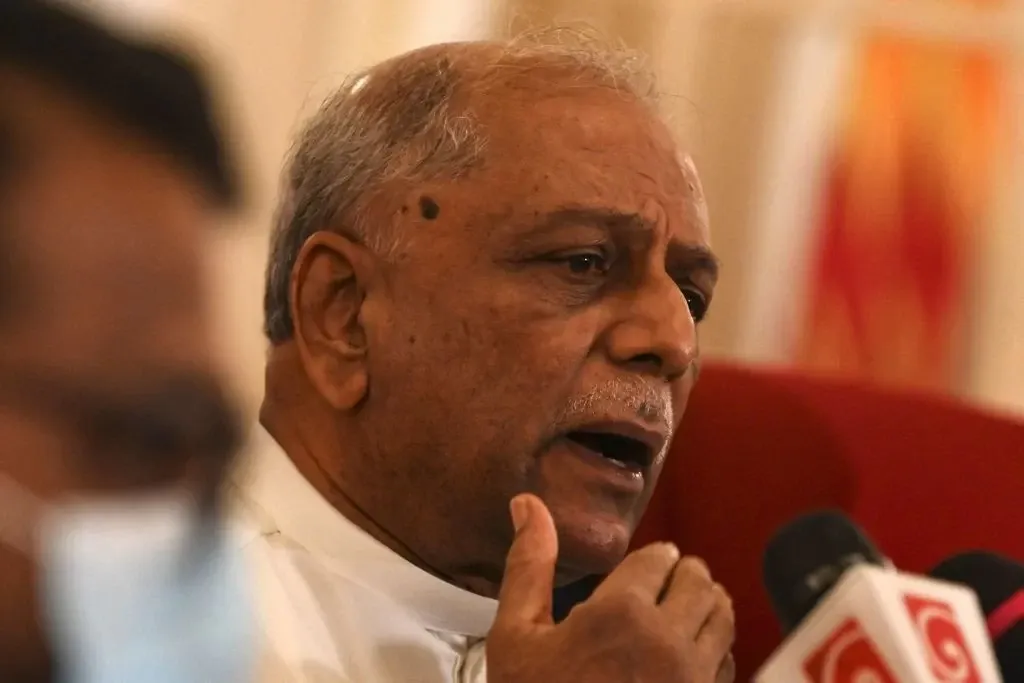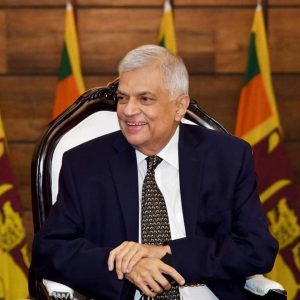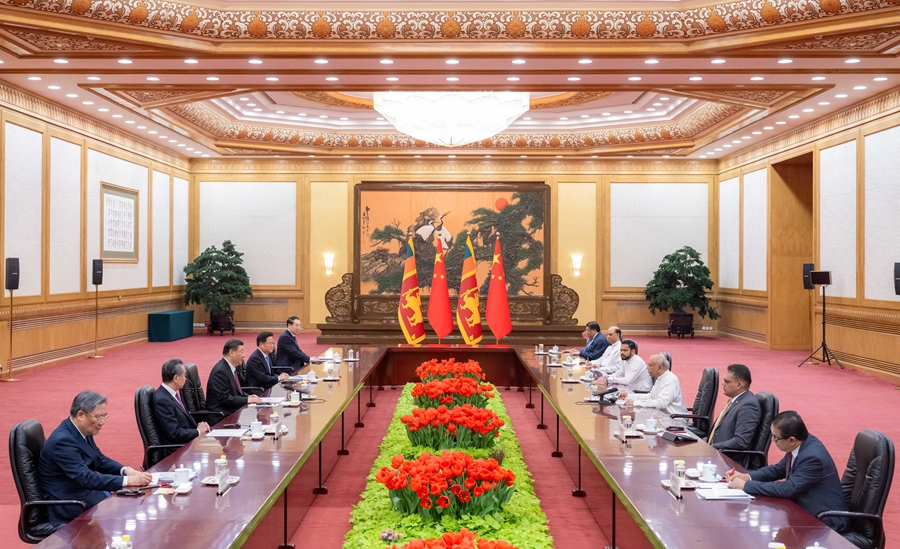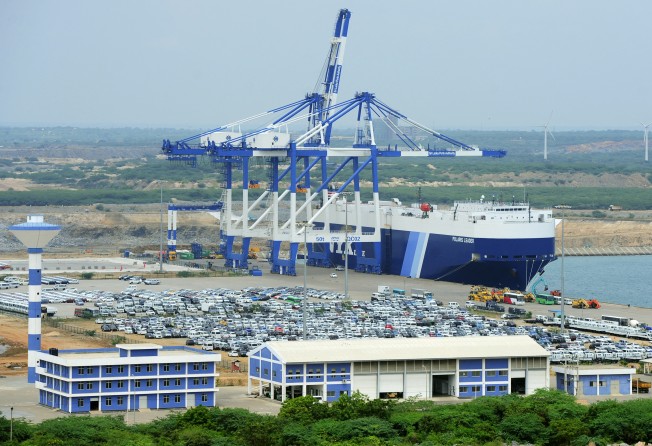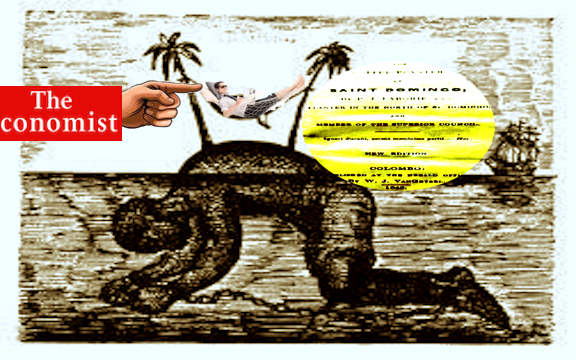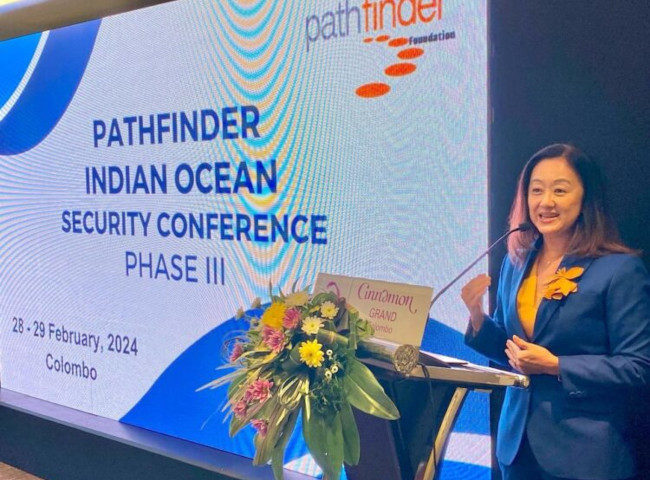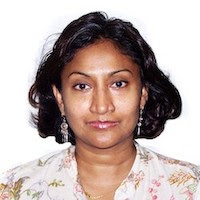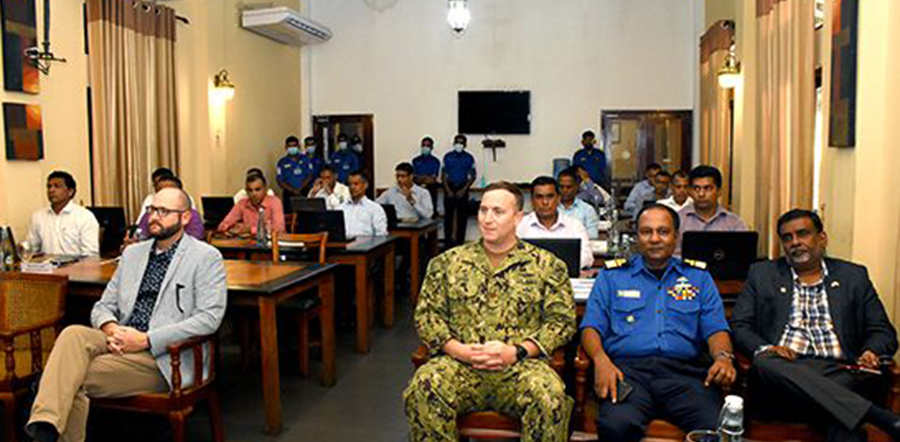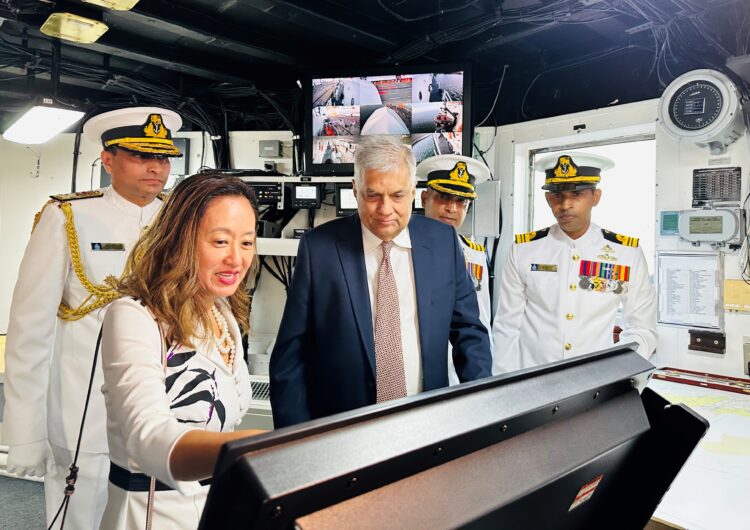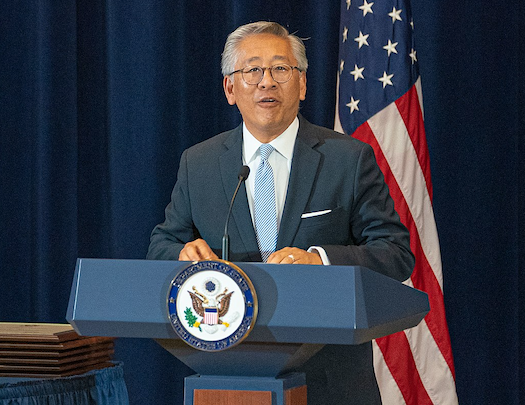By Sena Thoradeniya
1. How the Speaker Was Pressured?
Speaker Mahinda Yapa Abeywardena deserves plaudits of all anti-imperialist, anti-fascist, anti-hegemonic, anti-anarchist Sri Lankans for the bold statement he made immediately after the No Confidence Motion of the joint opposition on 21 March 2024. He revealed for the first time foreign powers (it is obvious who they were although he has not named them), some local politicians, a prominent Buddhist priest and a Catholic religious leader have pressured him to take over the Presidency during the Galle Face Protest.
He disclosed how he received telephone calls from various anti-state forces.He said that the objective of those who made the request was not to resolve the crisis, or restore law and order and protect the country, but to aggravate the problems and make Sri Lanka another Libya or an Afghanistan. He further stated that he was determined to uphold democracy and safeguard the country.
According to his statement, among those who exerted pressure on him were leading Bhikkhus and leaders of other religions. Some prominent religious leaders – popular Buddhist priests and others had surrounded his official residence to harm him if he failed to take over the Presidency and form a new government – in other words if he refused to adhere to the conspirators’ proposal.
Both internal and external forces influenced me to take over the Presidency and form a new government even violating the Constitution.” According to his statement, he was asked to name a Prime Minister and a Cabinet of Ministers to rule the country.
The Speaker for the first time revealed how the protesters tried to march towards the Parliament to set it ablaze.
2. Who Were They?
Omalpe Sobitha and Malcolm Cardinal Ranjith, the two godfathers of the Galle Face marauders, and Korean American Julie Chung, the self-appointed Viceroy of Sri Lanka are in the dock again, although the Speaker has not named names.
There were people who could not achieve what they wanted for more than 30 years”, was the most important reference he made in his accusation. Who were they? Obviously, the party that thinks that it has already won the Presidential and Parliamentary race, the Malimawa grandees who play a hide-and-seek game showing its duplicity.
3. Wimal Weerawansa’s Nine: The Hidden Story”
The Speaker’s statement confirms what Wimal Weerawansa stated in his book, Nine: TheHidden Story” published in 2023 and what this writer has stated in his book Galle Face Protest: Systems Change or Anarchy, Politics, Religion and Culture in a Time of Terror in Sri Lanka” (2023), Julie Chung’s direct intervention in the regime change. After the publication of Weerawansa’s book, many political analysts said that the Speaker had not denied or acknowledged what Weerawansa had stated. With the Speaker’s statement, the matter has been settled, although the Speaker fails to name names. He confirmed the direct intervention of Chung and other external forces. But the Speaker maintains an apologetic silence about Weerawansa’s main allegation, that Chung had visited him.
Thus, the Speaker does not reveal the visit of the unanticipated visitor” Julie Chung to his official residence, how she pressured and commanded him to accept the Presidency. It should be reminded that the JVP called for an Interim Government headed by the Speaker as the acting President. This happened immediately after Anura Kumara met Chung for the first time. We cannot dismiss the fact that the JVP was used by Chung to carry out her plan. Lal Kantha had admitted US intervention in the Galle Face protest.
The international conspirators wanted GR to sack Ranil Wickremasinghe as the Prime Minister with the connivance of Sri Lankan envoys in New Delhi and Washington respectively. Two letters were prepared for GR’s signature, one declaring GR’s resignation and the other sacking RW. At this time, plans were set afoot to storm the Parliament, capture it and occupy Supreme Courts Complex, signifying the fall of the national state, seats of the executive, legislature and judiciary falling into the hands of anarchic elements. A separate village was set up in front of RW’s private residence with the slogan Ranil Go Home” and his private residence was torched forcing him to resign. Against this backdrop installing the Speaker as the President would have hastened the destabilization process compelling the Security Forces to be mere onlookers.
Speaker has not answered another allegation made by Weerawansa that the Army Commander asking him to request RW to step down as he opined that bringing back normalcy was an uphill task to the security forces.
Weerawansa stated that after killing Muhammad Gadhafi, Americans installed an interim government in Libya headed by Speaker. Mahinda Yapa in his statement said that the conspirators wanted to make Sri Lanka another Libya or an Afghanistan.
Weerawansarevealed a leader of a very influential religious denomination (non- Buddhist) visiting the Speaker at his official residence and having a discussion with the latter and asking him to accept the Presidency after GR’s resignation. Weerawansa does not name this religious leader, but the Speaker in his statement some prominent religious leaders – popular Buddhistpriests and others”, confirms what Weerawansa had stated.
4. GR’s Action or Inaction?
The Speaker further stated that GR called him and sought his opinion on transferring power to him (the Speaker). However, I knew that if I have accepted the position without powers vested in me by the Constitution to do so, this country would have ended in anarchy”. What the Speaker says is that he has declined the offer as he was not sure that he will be able to appoint a new President within a month.
It is interesting to note that GR does not discuss this crucial constitutional issue in his book, The Conspiracy” (2024). He says: After reaching Singapore, I informed the Speaker of Parliament Mahindra Yapa Abeywardena that I would step down from the Presidency in the coming few days respecting the request made of me by the political parties. I had by this time, made up my mind to hand over the mantle of President to Prime Minister Ranil Wickremasinghe because I saw him as the only person capable of restoring law and order in the country” (Pp. 156-157). He has miserably failed to disclose the role Julie Chung played in his ouster. We ask why?
At this juncture we raise few pertinent questions: (1) Why does he respect the request made of him by the political parties”? (2) What are those political parties? SJB, JVP or Pohottuwa dissident groups? (3) Does he think that these parties have given him a mandate to be elected as the President of Sri Lanka? (4) Was he aware that RW and his close confidantes were playing an active role in the Galle Face ghetto? (5) Was he convinced that the only person capable of receiving Indian and American support was Ranil Wickremasinghe? (6) Was he pressured again by Chung & Co. to accept the Plan B of the conspiracy by handing over the Presidency to RW? (7) Can an elected President hand over the reins of power to another as he distributes his household silver?
5. Presidential Aspirants Among the Conspirators?
The greatest accusation made by the Speaker was that he was surprised to see some of those local politicians who imposed undue influence on him to become the President were among the signatories to the no-faith motion against him and voted in favour of the motion. How can that be? A person who was fit enough to become the President of the country a few months ago becoming unsuitable to be the Speaker of the Parliament a few moons later. Although the Speaker has not named names, we know that two of them are Presidential aspirants. The Speaker should have asked whether these two conspirators are fit to become the President of Sri Lanka.
The Speaker describes how he took action to safeguard the mace; what we infer is that he had sent the mace out of the Parliament, like Kandyan Kings hid the dalada to safeguard it (the sacred relic) from foreign invaders. The Speaker was not rightly advised by his advisors; if the protesters stormed the Parliament, elected their own government and passed legislation they can do it without a mace; what legitimacy they need after storming the Parliament and conducting sessions in an occupied Parliament? When they abrogate the Constitution who needs a mace? An arm of a broken chair is enough if they want to have some decorum.
The Speaker does not disclose what really happened at the party leaders meeting that day. The party leaders who are privy to the deliberations keep mum. Why? It’s another political game they all conveniently play. What they demanded from the Speaker was drowned in pollical deception and hypocrisy. These are the people who cast themselves as paragons of virtue, devoid of any human foibles.
The Speaker was the only person who has remained in the Parliament that day. It is apparent that other party leaders, guardians of parliamentary democracy” have left leaving the Speaker alone. I had to see the safety of all political party leaders in the Parliamentary Complex when it was surrounded by the protesters. They surrounded the Parliament during the party leaders meeting. I sent out all party leaders safely while I had to remain. It was also decided to send the mace out of the Parliament to ensure its safety. The Speaker does not say among the party leaders were those who pressured him to take over the Presidency.
In my book Galle Face Protest: Systems Change or Anarchy, Politics, Religion and Culture in a Time of Terror in Sri Lanka” (Pp 153- 174 ), I have stated how JVP and FSP had succeeded in becoming the leading force at Galle Face and other protest sites and how they were preparing for their third upheaval. JVP stalwart Lal Kantha’s plan was to close all roads, besiege the Parliament, demand all MPs passing a motion to dissolve the current Parliament; MPs would not be allowed to come out from the Parliament without voting for a motion to dissolve the Parliament.
According to this plan two new protest sites were established at Polduwa Junction and Diyatha Uyana respectively. Slogans changed from Aragalaya Diyawannewen obbata” to Aragalaya Diyawannawata”, Anthima satana” and Last 24 hours”. Pathum Kerner, a self-appointed leader warned the public to get ready for the 2.0 stage of their struggle. Lal Kantha called to bring Parliament under their control and that victory over the Rajapaksa dictatorship” would not be completed without seizing the Parliament. IUSF Convener too announced that they would take over the Parliament.
The Speaker correctly stated that if the Parliament (we add: and the Courts Complex; already the seat of the Executive occupied by the protesters) was occupied by the rioters and forming of a new administration was delayed the country would have broken into divisions, riots would erupt in every part of the Island and various forces would have taken over different areas of the country.
The readers are reminded that after May 09, 2022, the Frontline Socialist Party (FSP) called for the formation of regional insurgent groups.
This is what happens in Haitinow.
6. Haiti: American Test Run Proposed for Sri Lanka?
In Haiti, former main rebel leaders in 2004’s overthrow of President Jean-Bertrand Aristide called for Haiti Prime Minister to resign. Heavily armed gang leaders have begun shooting and killing seeking to expand their territorial control as political groups in Haiti are attempting to take over from an absent government after the Haiti Prime Minister Ariel Henry was forced to announce his resignation, forcing deployment of an International Security Mission”. E-con E-News in its 25 February – 2 March issue reported, Increasing evidence links Julie Chung, the then US Assistant Secretary of State for Western Hemisphere Affairs and her boss Victoria Nuland to the murder of Haitian President Jovenal Moise in July 2021 by Columbian gangsters. Chung had met with Moise just before his assassination, nearly one year before the almost murder of GR, just after Chung was posted from that Caribbean crime scene to a new coven here in Sri Lanka”.
After the assassination of Moise, Ariel Henry was selected as the Prime Minister by a group of diplomats called Core Group” (remember Sri Lanka also had Core Groups”) consisting of ambassadors to Haiti representing Brazil, the EU, France, Germany, Spain, Canada and of course the US. Ariel Henry was accused of having links to the killers of Moise.
Head of Delma 95 gang, Jimmy Barbeque” Cherizier’s Viv Ansanm Alliance” are fighting to take control of Haitian cities. Cherizier has threatened reprisals against politicians and their families. Armed gangs threaten politicians who join Transitional Council. Gangs continue to pillage homes and attack state institutions. State has become disintegrated; police stations torched; courts occupied by gangs. Capital’s bases/ brigades and homes of judges, Central Bank were attacked; Business District of the capital overrun by armed groups, paralysed by gang violence; power supply disrupted; sub-stations destroyed; gangs control roads; people in their thousands fleeing the capital Port- Au- Prince to find refuge in the countryside. Gang attacks began on February 29, gunmen targeting police stations. The main international airport remains closed. Gangs stormed Haiti’s two biggest prisons and released more than 4000 inmates. State banks have stopped operations.
7. Avatars of 1988/89
This reminds us JVP/DJV (Deshavimukthi Janatha Vyaparaya) killing spree during 1988-89) in Sri Lanka. As PRRA (Peoples’ Revolutionary Red Army) emerged in Sri Lanka to counter JVP/DJV attacks, vigilante groups have emerged in Haiti too. Vigilante groups blocking off their neighborhoods with felled trees began killing gang members; their charred bodies lying on the streets, hands cut off, metal wires wrapped around charred bodies; their houses set on fire.
If the Speaker had accepted the Presidency and protesters occupied the Parliamentary complex Warlords” of different regions would have emerged, – for example JVP/NPP Anuradhapura warlord, Badulla warlord, farmer warlord, trade union warlord, Ethera Api warlord, medical warlord, just to name a few – and run roughshod over the masses. Laurels to the Speaker for preventing such a catastrophe, for the simple reason for preventing such a blood bath as happening just now in Haiti. If not, Sri Lanka should have been the testing ground for the conspirators such as Chung, Nuland and Blinken to test a new ploy that they have invented.
8. Pied Pipers and Rats
Evidently two parties have prevailed in the protest movement, Protesters and Conspirators. The protesters were unaware of the conspirators’ agenda. We do not believe any protester wanted the Speaker to take over the Presidency. Conspirators knew if their plan succeeded total collapse and disintegration of the State will pave the way for their military intervention.
We are not foolish enough to believe that RW, the American – Indian puppet installed by GR, Prime Minister Dinesh Gunawardena, when he was the External Affairs Minister under GR, who treated the Swiss Ambassador and others involved in the Garniar Barrister aka Sriyalatha Perera fiasco with kid gloves and the present Foreign Minister, who plays a roaming role from Justice and Finance to Foreign Affairs will initiate an inquiry, ask the Speaker to reveal the names of the foreign and local bigwigs who pressured him, declare Julie Chung persona non grata or nominally ask the US government to recall her.
We urge the capitalist press and politicians to treat that the insinuation of foreign involvement in the ouster of GR is not merely a canard and not to dismiss it as a baseless conspiracy theory, an easy trick employed to dismiss anything and everything worthwhile as conspiracy theories, a fashion of the less informed and the prejudiced.
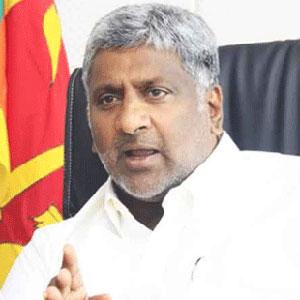 Colombo, March 28 (Daily Mirror)- Claiming that the Sri Lanka Podujana Peramuna (SLPP) has no suitable Presidential candidate at the moment, Minister Prasanna Ranatunga said Namal Rajapaksa can contest for Presidency only after another five to ten years’ time.
Colombo, March 28 (Daily Mirror)- Claiming that the Sri Lanka Podujana Peramuna (SLPP) has no suitable Presidential candidate at the moment, Minister Prasanna Ranatunga said Namal Rajapaksa can contest for Presidency only after another five to ten years’ time.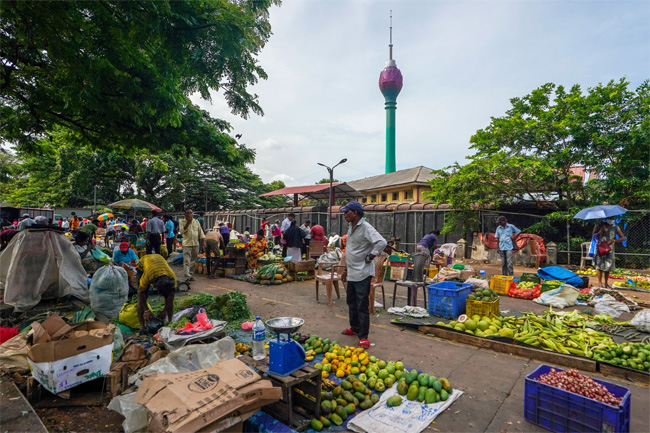
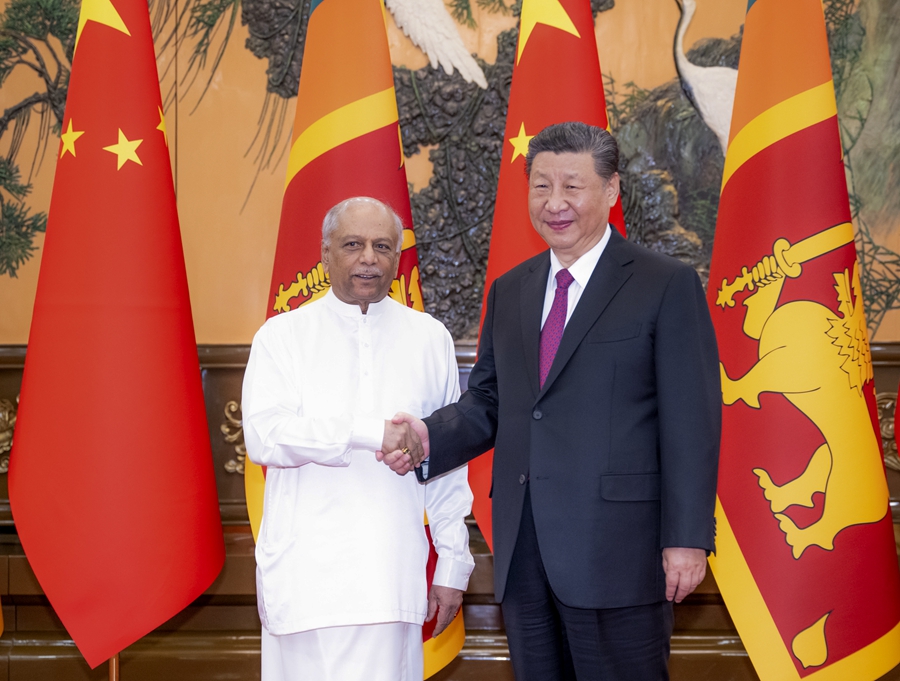
 Aragalaya Ground – ”Extrime Religious Syncretism” Thease actions are legally and ethically flawed
Aragalaya Ground – ”Extrime Religious Syncretism” Thease actions are legally and ethically flawed
